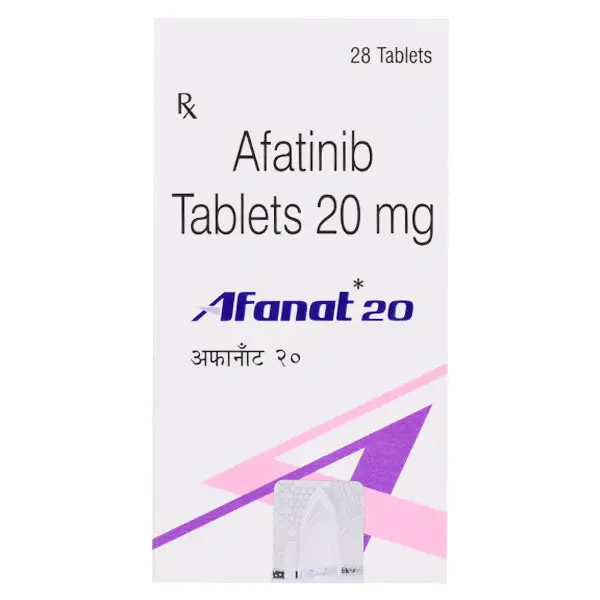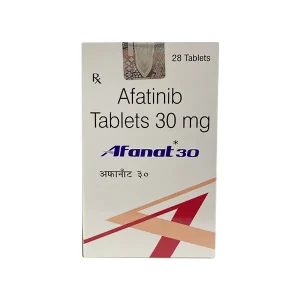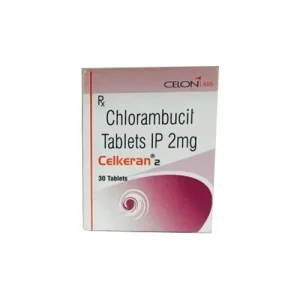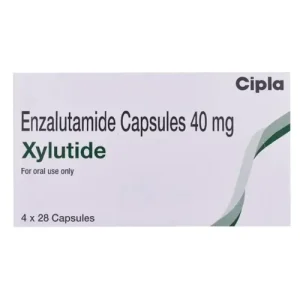Description
Afatinib 20 mg Tablets – Targeted Therapy for Lung Cancer
Afatinib 20 mg is an oral anti-cancer medication used for the treatment of patients with non-small cell lung cancer (NSCLC) that has specific EGFR (epidermal growth factor receptor) mutations. Afatinib belongs to the class of drugs called tyrosine kinase inhibitors (TKIs) and works by blocking abnormal proteins that cause cancer cells to grow.
Key Features & Benefits:
- Used as first-line treatment in metastatic NSCLC with EGFR mutations
- Inhibits cancer cell growth and delays disease progression
- Oral tablet form – convenient and easy to administer
- Targeted therapy with better specificity than traditional chemotherapy
- Often prescribed when tumors test positive for exon 19 deletions or exon 21 L858R substitutions
Dosage & Administration:
Typically taken once daily on an empty stomach, at least 1 hour before or 2 hours after eating. Do not crush or chew. Dosage may be adjusted by your oncologist depending on side effects or lab results.
Precautions:
- Use only under the supervision of a qualified oncologist
- Inform your doctor if you have liver, kidney, or heart issues
- Not recommended during pregnancy or breastfeeding unless advised
- Routine monitoring of liver function, skin condition, and lung health is essential
Storage:
Store at room temperature (15°C–30°C), in a dry place, away from direct sunlight. Keep out of reach of children.
Disclaimer:
This is a prescription-only medication for cancer treatment. It should only be used under strict medical guidance. Information provided here is for educational purposes and does not substitute professional medical advice.
Frequently Asked Questions (FAQs)
1. What is Afatinib 20 mg used for?
Afatinib 20 mg is used to treat advanced or metastatic non-small cell lung cancer (NSCLC) in patients with EGFR gene mutations.
2. How does Afatinib work?
Afatinib blocks the activity of EGFR and other related proteins, stopping cancer cells from growing and spreading.
3. Can Afatinib cure lung cancer?
Afatinib is not a cure but helps to manage and slow the progression of the disease in patients with specific mutations.
4. What are the common side effects of Afatinib?
Side effects include diarrhea, skin rash, mouth sores, weight loss, and nail infections. Serious side effects should be reported to a doctor immediately.
5. Is Afatinib safe during pregnancy?
No, Afatinib is not recommended during pregnancy. Women of childbearing age should use effective contraception during and after treatment as advised by their doctor.
6. How long can I take Afatinib?
The duration depends on how well your body responds to treatment and the side effects experienced. Your oncologist will guide you on treatment continuity.
7. Can Afatinib be taken with food?
No. Afatinib should be taken on an empty stomach—at least 1 hour before or 2 hours after a meal—for proper absorption.





